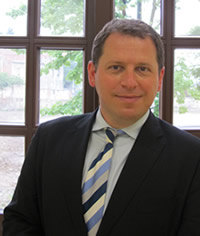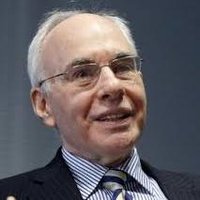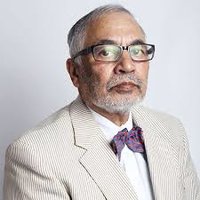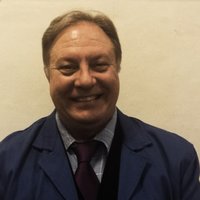Roundtable on Global Governance: Challenges & Opportunities
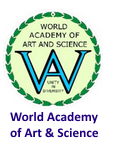 |
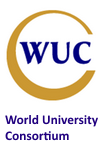 |
 |
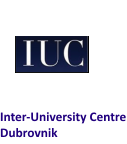 |
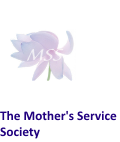 |
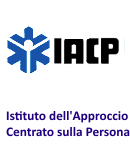 |
Post-graduate Seminar
Inter-University Centre, Dubrovnik – November 22-24, 2018
The world we live in presents challenges and opportunities beyond the capacity of even the strongest, most developed nations or group of nations to effectively address without working in concert with the rest of humanity. Peace and security, climate and environmental management, immigration and population, trade and investment, technological development and employment, tax evasion and money-laundering, drug traffic and terrorism compel us to seek global solutions backed by institutions with the capacity and authority to conceive, implement and enforce them. None of these issues can be effectively addressed at the level of individual nation states pursuing their own self-interest in competition or conflict with that of other nations or by bilateral agreements or regional groups of nations. All necessitate increasing and unprecedented levels of cooperation and collaboration by the global community as a whole.
We live in an increasingly globalized world, yet our instruments of governance remain anchored in antiquated, flawed and largely ineffective national level institutions guided by narrow perspectives, misguided priorities, competitive strategies and mutually exclusive objectives. Global governance remains an artificial appendage or after-thought forged by the compulsions of necessity rather than consciously conceived and designed as an integral and essential component of a comprehensive and effective system for human self-governance.
Humanity and its institutions have, no doubt, evolved dramatically from the time a few centuries ago when international relations were decided by the whims of monarchs and ambitions of colonial empires, enforced by the exercise or threat of violence, enshrined in bilateral treaties and alliances, modified to suit the apparent advantages of the moment, and founded on principles of self-interest and balance of power. Today the world is governed by myriad institutions at innumerable levels, including international governmental institutions, charters, conventions, treaties, rules of law, committees, systems, multinational and national corporations, non-governmental organizations and associations relating to peace, security, justice, trade, economy, finance, transport, communication, education, science, technology, culture, religion, entertainment and other fields.
In spite of this multiplication of pathways and instruments for governance, the rapid evolution of global society continues to outpace the development of institutions to guide, monitor and manage the increasing range and magnitude of the opportunities and challenges that arise. The growing gap between the needs of humanity and its prevailing system of institutions severely retards our collective progress and threatens to undermine the foundations of peace, security, freedom and stability on which the gains of the post-World War II and post-Cold War world have been achieved.
This three-day roundtable cum PG course will explore the recent challenges and opposition to the continued evolution of global governance to identify the key drivers of global social evolution, critical obstacles and impediments, the most desirable goals and effective strategies to further progress toward their realization. It will build on insights derived during the Dubrovnik Roundtable on the Future of Democracy (April 2018) and the Paris Colloquium on the role of international organizations in global economic governance (May 2018). It will seek to draw insights from multiple fields—economy, politics, law, human rights, civil society, media, education, science, technology, psychology and culture—and explore the interdependences between them.
Organized by
World Academy of Art & Science
An international think tank composed of 730 individual Fellows from diverse cultures, nationalities, and intellectual disciplines, WAAS serves as a forum for addressing the pressing challenges confronting humanity today founded on faith in the power of original and creative ideas to change the world—Leadership in Thought that Leads to Action. Its mission is to promote cross-disciplinary dialogue generative of original ideas and integrated perspectives that comprehend the root causes and effective remedies for our common problems while furthering those currents of thought and social movement that affirm the value of human dignity and equitable development.
World University Consortium
The mission of World University Consortium is to evolve and promote development of accessible, affordable, quality higher education worldwide based on a human-centered approach that shifts the emphasis from specialized expertise to contextualized knowledge within a trans-disciplinary conceptual framework reflecting the complexity and integration of the real world, from teaching mastery of a field of knowledge to learning that enhances the capacity of students to think and discover knowledge for themselves, from theoretical mastery to acquisition of knowledge, skills and values relevant to each individual’s personal development and career.
Dag Hammarskjöld University College of International Relations and Diplomacy
The Dag Hammarskjöld University College of International Relations and Diplomacy is the leading institution for training experts in the field of international relations and diplomacy in Croatia. It trains students by developing their competencies for research, creation, implementation and active management of international relations, which should ensure a better quality of life for people in the Republic of Croatia, in the region and in the world.
Inter-University Centre
IUC, Croatia, is an independent international institution for advanced studies structured as a consortium of universities with a mission to organise and promote contact and exchange across a wide range of subjects.
The Mother’s Service Society
A social science research and educational institution in India, MSS conducts original research on the process of individual, organizational, national and international development.
Person-Centered Approach Institute
The Person-Centered Approach Institute (IACP), is a scientific non-profit organization operating internationally and dedicated to the protection and promotion of human capital, offering training, research and consulting services with the various applications of the Person-Centered Approach, a scientifically validated method formulated by one of the founders, the late Carl Rogers. IACP post-graduate trainings are recognized by the Italian Ministry of Education. IACP is an approved provider of continuing education courses by the Italian Ministry of Health and the Ministry of Education.
For more information contact support@worldacademy.org.
 |
 |
 |
 |
 |
 |
Global Governance: Challenges & Opportunities
A Roundtable & Planning Workshop
Inter-University Centre, Dubrovnik – November 22-24, 2018
Tentative Questions to be explored in the Global Governance Roundtable
Session 1: Introduction
Session 2: Catalysts and Drivers for Global Governance – past and future
- What have been the principal factors driving the evolution of global society over the past century?
- What are the most likely drivers for the future evolution of global governance?
Session 3: Global Governance and Human Welfare
- What have been the collective benefits generated by the evolution of global governance?
- What are the most important lessons that have been learned from the process?
- What opportunities have been generated by global systems for communication, transportation, exchange of goods and information, economic development, scientific and technological progress, social and personal relationships?
- What are the potential benefits of enhancing and accelerating its development?
- What conditions must be met for global governance to enhance human welfare?
- Why are regional or global governance regimes seen as detrimental to human welfare in some countries, triggering a nationalist backlash?
- What are the main obstacles to a global governance reform dedicated to human welfare?
Session 4: Global Governance: Challenges and Necessity
- Challenges posed by rapid and uneven technological advances, depletion of resources, pollution, political instability, militarization and armed confrontation, migration, unemployment, inequality and multi-culturalism
- What aspects of human society would be most effectively governed at the global level?
Session 5: Failures, Obstacles, and Unresolved Problems
- What have been the most serious failures of global governance and the reasons for them?
- Apparent failures and unresolved problems that obstruct the future development of the global community
Session 6: Role of Academia and Civil Society in the evolution of Global Governance
- What is the role of academia and civil society in the evolution of global governance and how can it be made more effective?
Session 7: National Sovereignty and Global Governance
- What is the relationship between the development of the nation state and the global community?
- What conflicts does it generate and under what conditions can they be reconciled?
Session 8: Role of business & economy in the evolution of Global Governance
- What is the role of business and economy in the evolution of global governance?
- How can its positive potentials be more fully harnessed?
- How can its negative contributions be minimized?
Session 9: Democracy and Global Governance
- What is the appropriate place for democracy in global governance?
- To what extent has it been achieved in any fields of governance?
- How can it be achieved more fully?
- What are the principle barriers to be overcome?
Session 10 & 11: Small Group Discussions & Report of Discussion Groups Session 12: Global Rule of Law and Universal Human Rights
- The role of international law in the evolution of global governance
- The evolution and role of universalized recognized human rights
Session 13: Strategies to enhance & accelerate effective governance of the globe
- What have been the most successful strategies applied to further progress at the global level?
- What new or alternative strategies should be applied to achieve these objectives?
- What strategies can be adopted to more effectively address current threats, bottlenecks, impasses and opposition?
Session 14: Viable pathways for the transition of global society to a more peaceful, prosperous and sustainable future for all humanity
- What are the likely benefits and risks of increasing movement toward global governance?
- What would be the most beneficial ultimate objectives of the evolution of global governance?
- What are the main barriers to global governance, and how can we overcome them?
- What are the main strategies and leverage points in different areas of society for achieving global governance (i.e. political, economic, public awareness and empowerment)?
Sessions 15 & 16: Discussion & Conclusions & Recommendations
 |
 |
 |
 |
 |
 |
Global Governance: Challenges & Opportunities
A Roundtable & Planning Workshop
Inter-University Centre, Dubrovnik – November 22-24, 2018
Schedule of Lectures (Tentative List)
|
November 22, 2018 |
|||
|
No. |
TOPIC |
MODERATORS/PANELISTS |
TIMING |
|
1 |
Introduction |
Heitor Gurgulino de Souza Garry Jacobs |
9:00 AM – 9:30 AM |
|
2 |
Catalysts and Drivers for Global Governance – past and future |
Alberto Zucconi Stefan Brunnhuber |
9:30 AM – 11:00 AM |
|
3 |
Global Governance and Human Welfare |
Thomas Reuter Elif Çepni |
11:30 AM – 1:00 PM |
|
4 |
Global Governance: Challenges and Necessity |
Tibor Tóth Zlatko Lagumdžija |
2:00 PM – 3:30 PM |
|
5 |
Failures, Obstacles and Unresolved Problems |
Fadwa El Guindi Nebojša Nešković |
4:00 PM – 5:30 PM |
|
November 23, 2018 |
|||
|
6 |
Role of Academia and Civil Society in the evolution of Global Governance |
Marcel van de Voorde Olivia Bina |
9:00 AM – 10:30 AM |
|
7 |
National Sovereignty and Global Governance |
Emil Constantinescu Goran Bandov |
11:00 AM – 12:30 PM |
|
8 |
Role of Business and Economy in the evolution of Global Governance |
Zbigniew Bochniarz Erich Hoedl |
1:30 PM – 2:45 PM |
|
9 |
Democracy and Global Governance |
Garry Jacobs Mariana Todorova |
2:45 PM – 3:30 PM |
|
10 |
Small Discussion Groups |
4:00 PM – 5:00 PM |
|
|
11 |
Reports from the Discussion Groups |
5:00 PM – 5:30 PM |
|
|
November 24, 2018 |
|||
|
12 |
Global Rule of Law and Universal Human Rights |
Momir Đurović Goran Bandov* |
9:00 AM – 10:30 AM |
|
13 |
Strategies to enhance and accelerate effective governance of the Globe |
Emil Constantinescu* Rodolfo Fiorini |
11:00 AM – 12:30 PM |
|
14 |
Viable pathways for the transition of global society |
John Bunzl Frank Dixon |
1:30 PM – 3:00 PM |
|
15 |
Discussion |
3:30 PM – 4:30 PM |
|
|
16 |
Conclusions & Recommendations |
4:30 PM – 5:00 PM |
|
*to be confirmed
Global Governance: Challenges & Opportunities
A Roundtable & Planning Workshop
Inter-University Centre, Dubrovnik – November 22-24, 2018
Background Papers
Click here to download background papers
- Integrated Approach to Peace & Human Security in the 21st century by Garry Jacobs
- New Paradigm for Global Rule of Law by Winston P. Nagan & Garry Jacobs
- Social Evolution, Global Governance and a World Parliament by Andreas Bummel
- Evolution from Violence to Law to Social Justice by Winston P. Nagan & Garry Jacobs
- Global System Change: A Whole System Approach To Achieving Sustainability and Real Prosperity by Frank Dixon
- Note for discussion by Marcel Van de Voorde and Olivia Bina - Role of Academia & Civil Society in the Evolution of Global Governance and how can it be made more effective?
- Who should Govern on what Principles? The Future of Decision Making by Elif Çepni
- Social Democratic Constitutionalism, New Economic Theory, and the Dangers of Neoliberalism’s Attacks on Rational Government Regulation by Winston P. Nagan & Craig Hammer
COURSE DIRECTORS
|
Goran Bandov, |
Garry Jacobs, |
Winston Nagan, |
Alberto Zucconi, |
 |
 |
 |
 |
 |
 |
Global Governance: Challenges & Opportunities
A Roundtable & Planning Workshop
Inter-University Centre, Dubrovnik – November 22-24, 2018
LIST OF PARTICIPANTS
- Maxim Avksentye: Chairman, Ukraine-Montenegro Business Association; Former Deputy Rector, Kiev National University of Construction & Architecture
- Goran Bandov: Associate Professor and Vice Dean, Dag Hammarskjöld University College of International Relations and Diplomacy, Zagreb; Associate Fellow, World Academy of Art & Science
- Olivia Bina: Principal Researcher, Institute of Social Sciences of the University of Lisbon; Adjunct Assistant Professor, Department of Geography and Resource Management of the Chinese University of Hong Kong (CUHK)
- Zbigniew Bochniarz: Professor, University of Washington and Harvard Business School; Member, WAAS Board of Trustees
- Ivan Brodić: Student, Dag Hammarskjöld University College of International Relations and Diplomacy
- Stefan Brunnhuber: Endowed Professor, Psychology & Sustainability, University of Applied Sciences (HSMW), Germany; Medical Director, Diakonie Hospital, Germany; Fellow, World Academy of Art and Science
- John Bunzl: Businessman, Writer, Founder, Simultaneous Policy (Simpol) campaign
- Elif Çepni: Head, Nisantasi International, Nisantasi University, Turkey; Partner, Foresight Consult; Associate Fellow, World Academy of Art & Science
- Emil Constantinescu: President, The Institute for Advanced Studies in Levant Civilization and Civilization; Member, WAAS Board of Trustees
- Frank Dixon: Sustainability and System Change Consultant, USA; Author, Global System Change series of books
- Momir Đurović: Former President, Montenegrin Academy of Sciences & Arts; Member, WAAS Board of Trustees
- Fadwa El Guindi: Retiree Professor of Anthropology, University of California, Los Angeles (UCLA), USA; Fellow, World Academy of Art and Science
- Rodolfo Fiorini: Professor of Bioengineering at the Department of Electronics, Information and Bioengineering, Politecnico di Milano University, Italy; Fellow, World Academy of Art and Science
- Bruno Korea Gajski: Lecturer, Dag Hammarskjöld University College of International Relations and Diplomacy
- Heitor Gurgulino de Souza: President, World Academy of Art & Science and World University Consortium; President, Brazilian Chapter of the Club of Rome
- Erich Hoedl: Vice-President, European Academy of Sciences; Member, WAAS Board of Trustees
- Senthil Inbarajan: Software Professional, USA
- Garry Jacobs: Chief Executive Officer, World Academy of Art and Science; Vice-President, The Mother’s Service Society, India
- Nikolina Herceg Kolman: Lecturer, PhD student in Comparative Politics at the Faculty of Political Science, University of Zagreb
- Zlatko Lagumdžija: Former Prime Minister of Bosnia and Herzegovina; Fellow, World Academy of Art and Science
- Ivana Lazarowski: Student, MA in International Security Studies, University of Belgrade; Junior Fellow, World Academy of Art & Science
- Nebojša Nešković: Secretary-General, World Academy of Art & Science; Former Head of TESLA Project, Vinca Institute of Nuclear Sciences, Belgrade, Serbia
- Elina Nimani: Student, Dag Hammarskjöld University College of International Relations and Diplomacy
- Natalia Pogozheva: CEO of Green Education Ukraine Foundation; Associate Fellow, World Academy of Art & Science
- Thomas Reuter: Professor, Asia Institute, The University of Melbourne; Fellow, World Academy of Art & Science
- Oksana Sljusarenko: Principal Research Scientist, Council for Study of Productive Forces in Ukraine; Head of the Department of Financial Institutions and Markets of the Ministry of Finance of Ukraine; Fellow, World Academy of Art & Science
- Mariana Todorova: Co-Chair, the Bulgarian Node of the Millennium Project; Member of Parliament, National Assembly of the Republic of Bulgaria; Assistant Professor, Bulgarian Academy of Sciences
- Tibor Tóth: Ambassador, Executive Secretary Emeritus, Comprehensive Nuclear-Test-Ban Treaty Organization PC; Member, WAAS Board of Trustees
- Marcel Van de Voorde: Professor, University of technology Delft, Netherlands; Executive Advisor to Minister for Education & Research, Serbia; Fellow, World Academy of Art & Science
- Ranko Vilović: Lecturer, Dag Hammarskjöld University College of International Relations and Diplomacy
- Marco Vitiello: Student, Roma Tre University, Italy
- Vesna Vučinić-Nešković: Professor, Department of Ethnology and Anthropology, Faculty of Philosophy, University of Belgrade; Fellow, World Academy of Art & Science
- Alberto Zucconi: President, Person Centered Approach Institute (IACP), Italy; Secretary General, World University Consortium; Member, WAAS Board of Trustees
